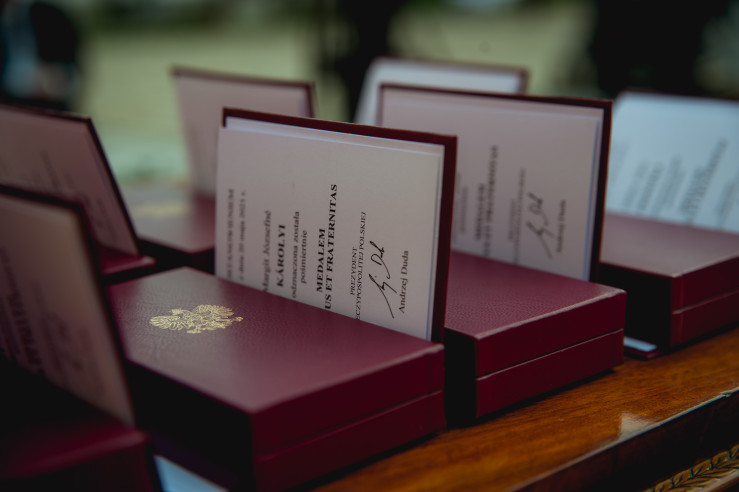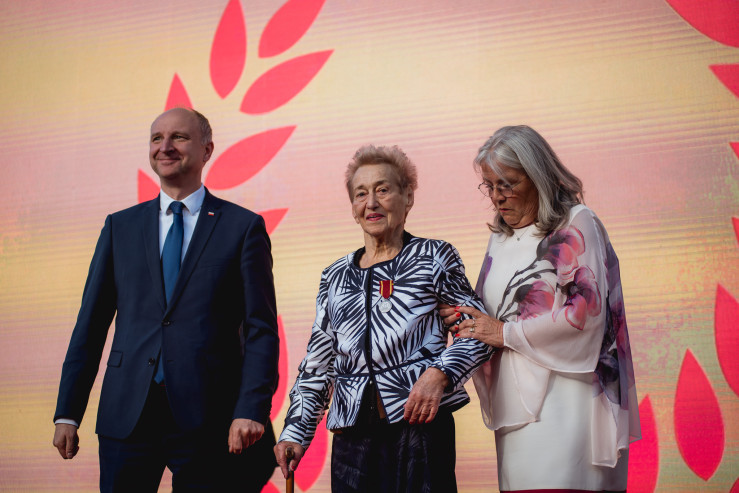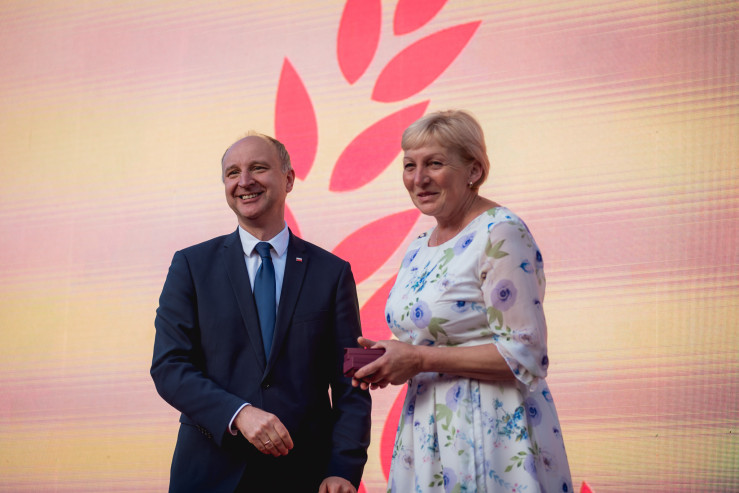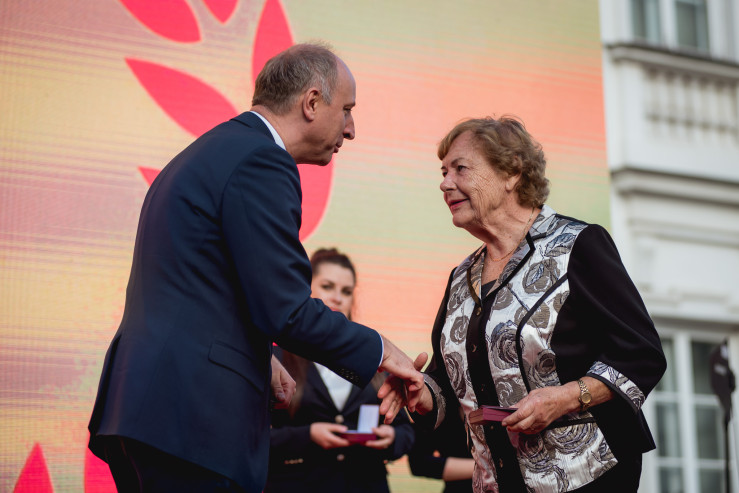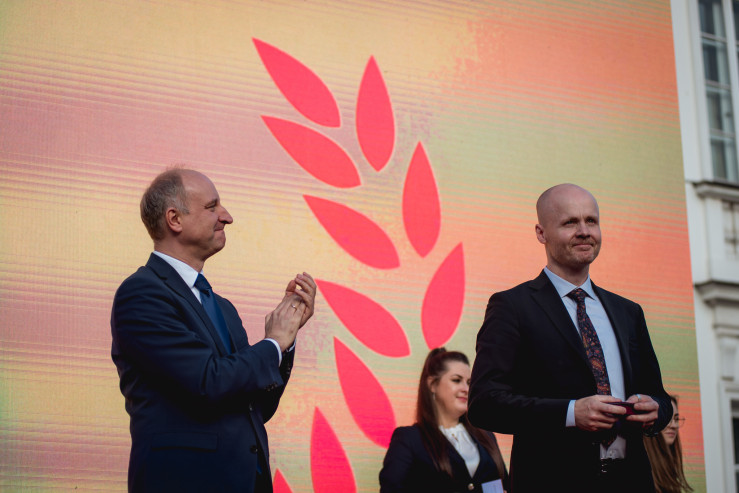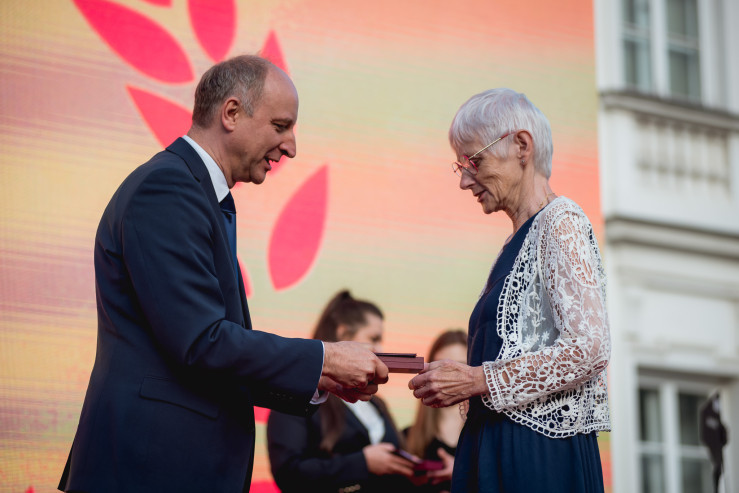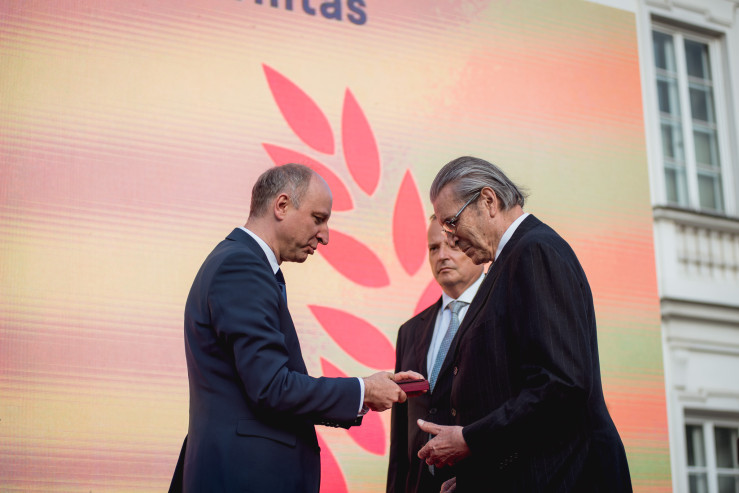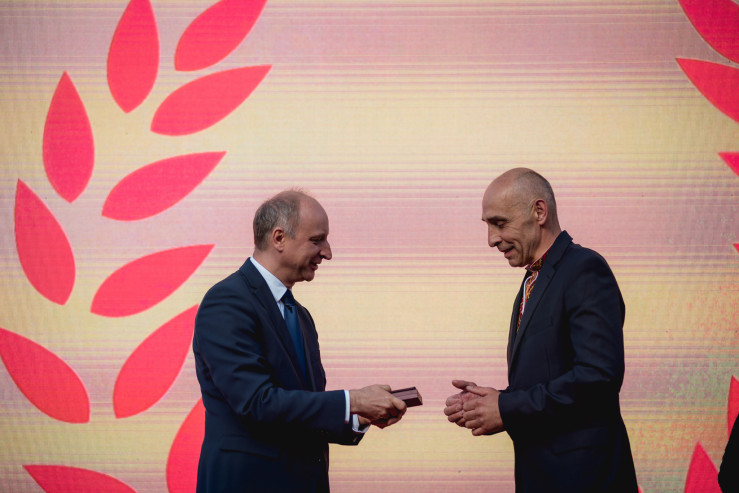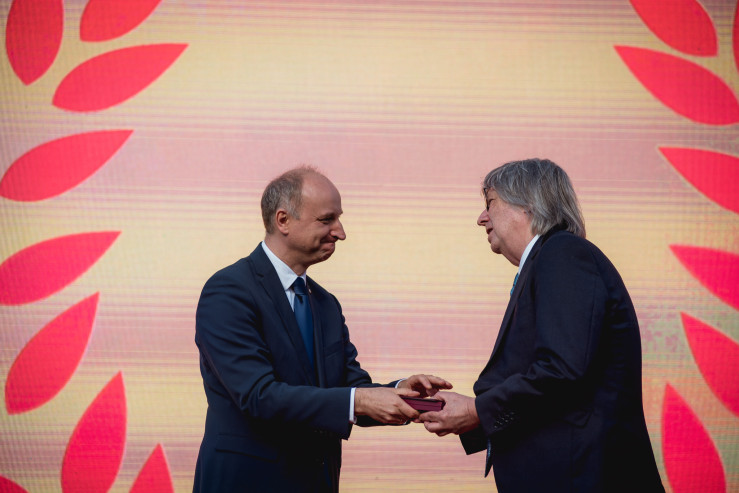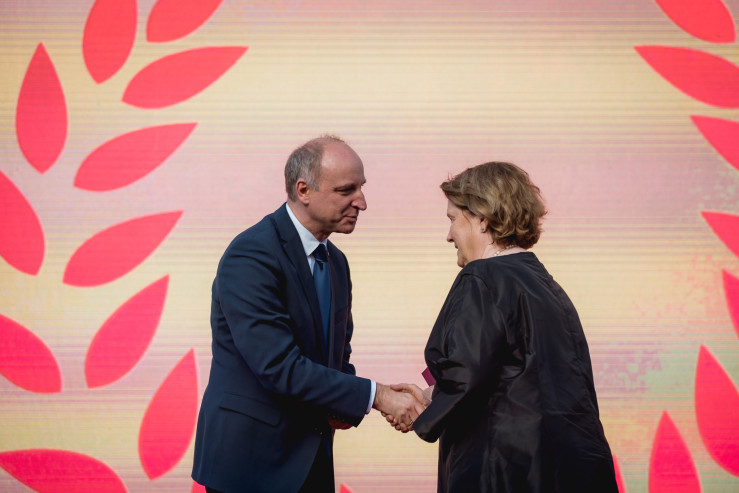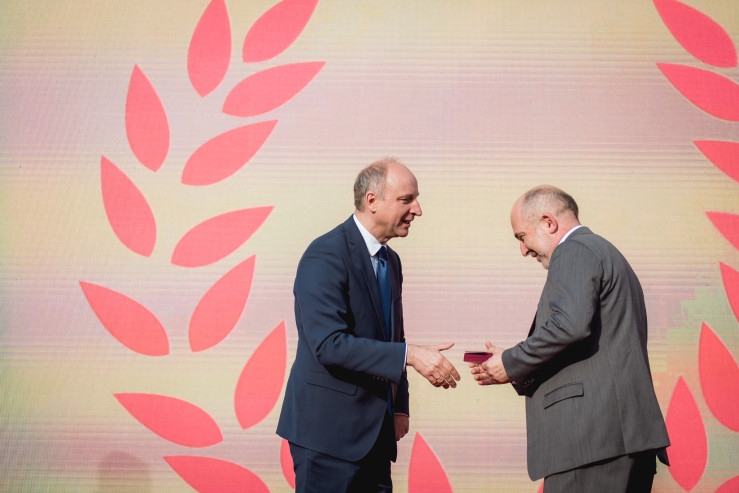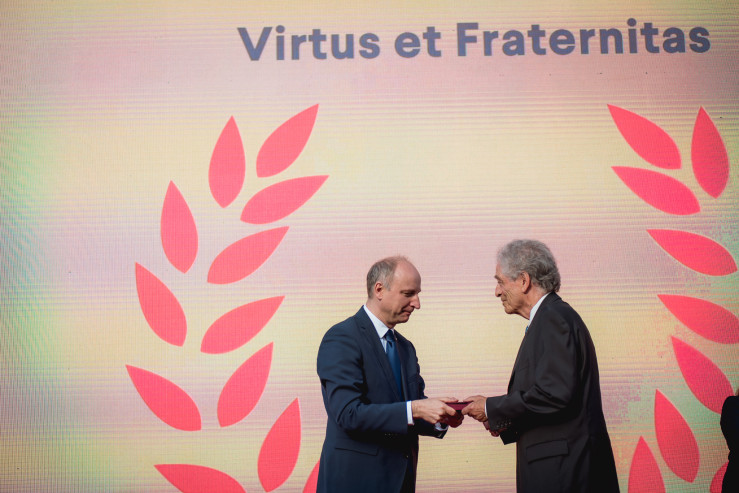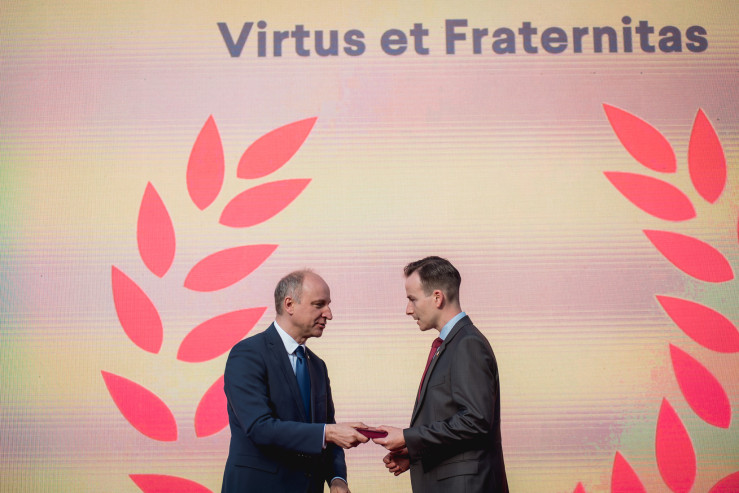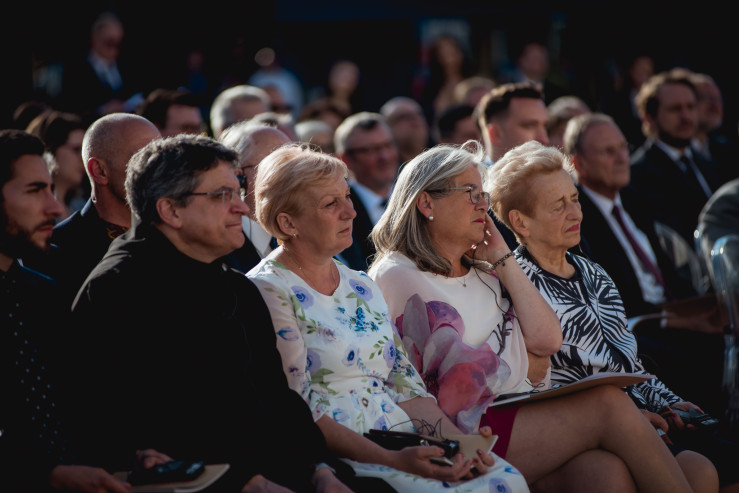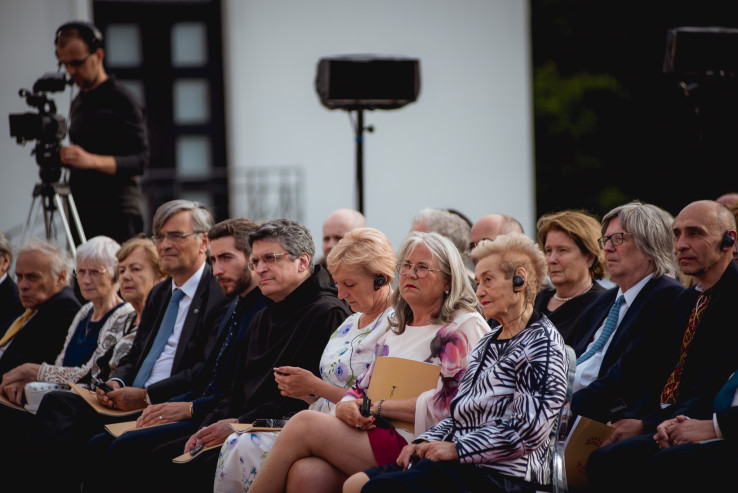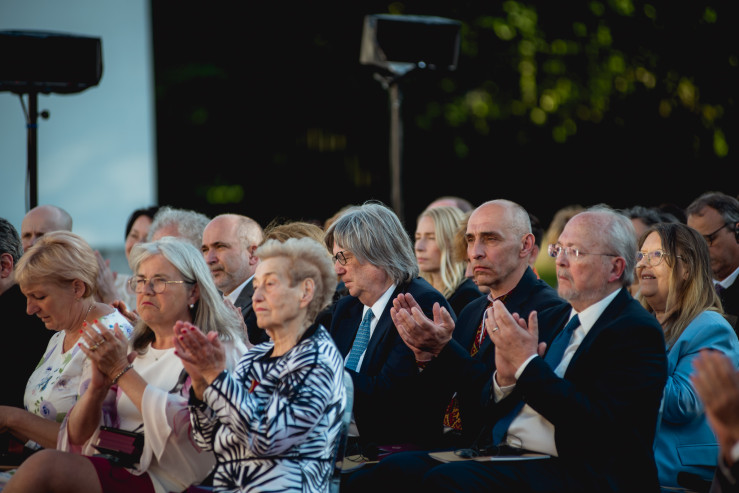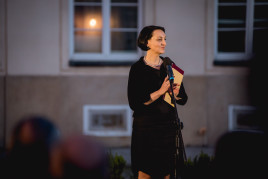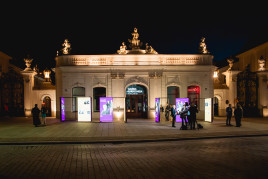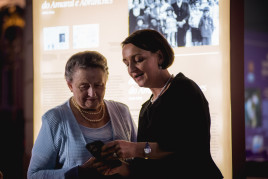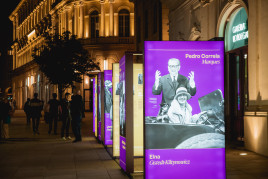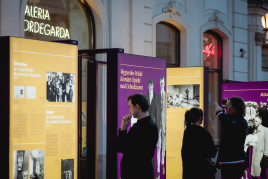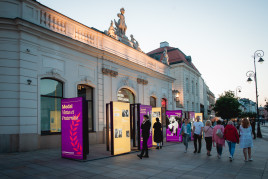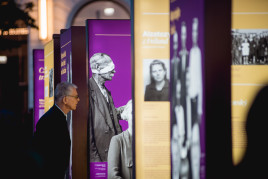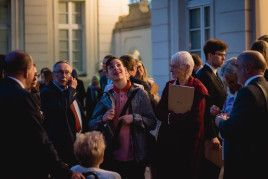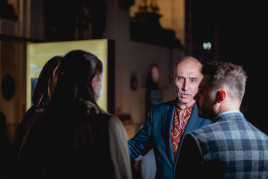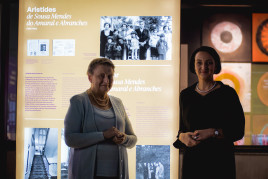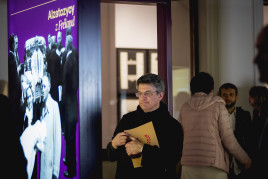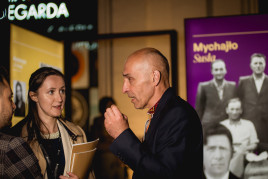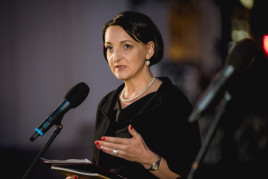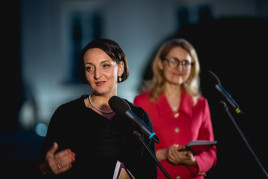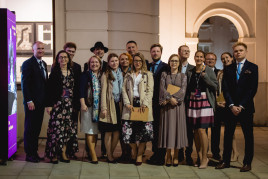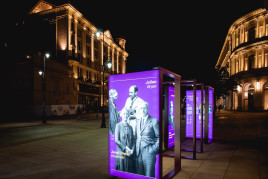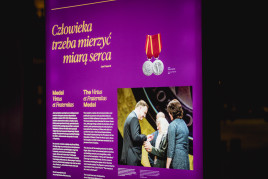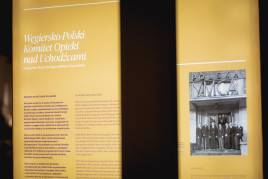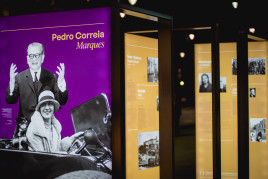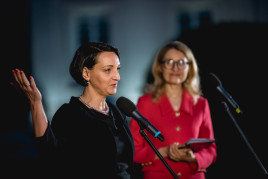Virtus et Franternitas Medals presented - Instytut Pileckiego
Virtus et Franternitas Medals presented
The third edition of the Virtus et Fraternitas Medal Gala took place on 15 June 2022. This time, at the request of the Director of the Pilecki Institute, the President of the Republic of Poland bestowed medals on a total of 23 people.
The Virtus et Fraternitas Medal is awarded by the President of the Republic of Poland as a symbol of remembrance and gratitude to those who distinguished themselves in aiding Poles and nurturing the memory of Polish victims of the totalitarian systems of the 20th century.
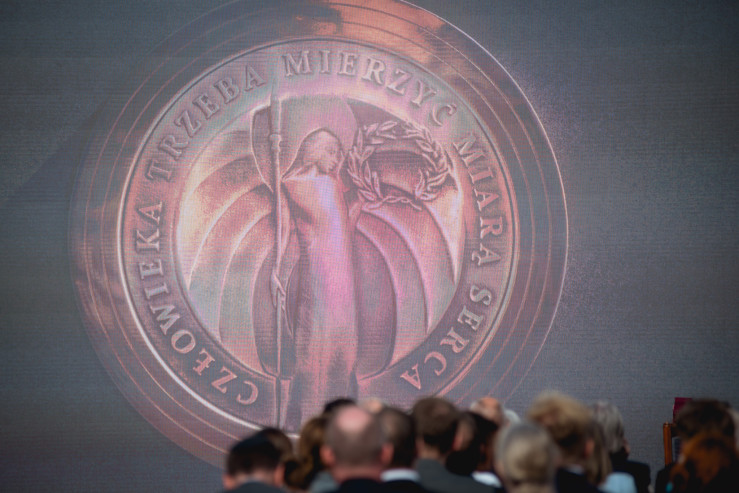
The great value of this award is in its ability to unite symbolically very disparate people – distinguished diplomats and politicians of the highest level as well as people who are publically unknown. All those who were awarded the Virtus et Fraternitas Medal decided to help in accordance with the words of the late John Paul II:
The measure of a man is his heart.
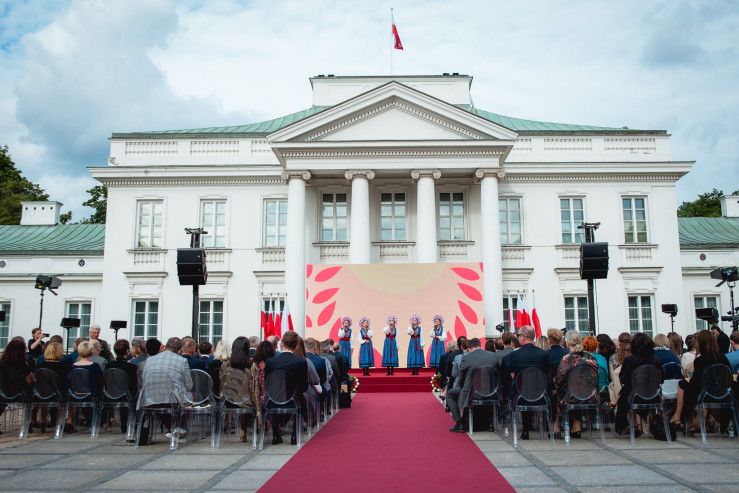
The ceremony took place in the courtyard of the Belweder Palace. All attendees were greeted by the Polish-Ukrainian vocal group Zazula, which performed a medley of folk songs (“Narodzie nasz piękny” [“Our beautiful nation”], “Cicho nad rzeką” [“Silently on the riverside”], and “Kare konie” [“Black horses”]).
The first to speak was a representative of the Chancellery of the President of the Republic of Poland, Undersecretary of State Wojciech Kolarski, who read a letter from President Andrzej Duda addressed to the recipients of the Virtus et Fraternitas Medal and their families, as well as to the representatives and descendants of the survivors.
One common factor draws our attention in all the biographies of the people we are honoring today: their merits consist not in individual heroic deeds, but in a certain steadfastness of conviction, in a series of successive acts of defiance against inhuman laws, against persecution and terror. Under Soviet and German occupation, under collaborationist and post-war communist regimes, there were people who met the needs of successive waves of murdered, terrorized, and persecuted people day after day, month after month. The same people rescued Jews and Poles, resisted the Nazis and the Bolsheviks, despite the punishments and persecutions experienced both during the war and after its end.
Excerpt from the letter of the President of the Republic of Poland Andrzej Duda
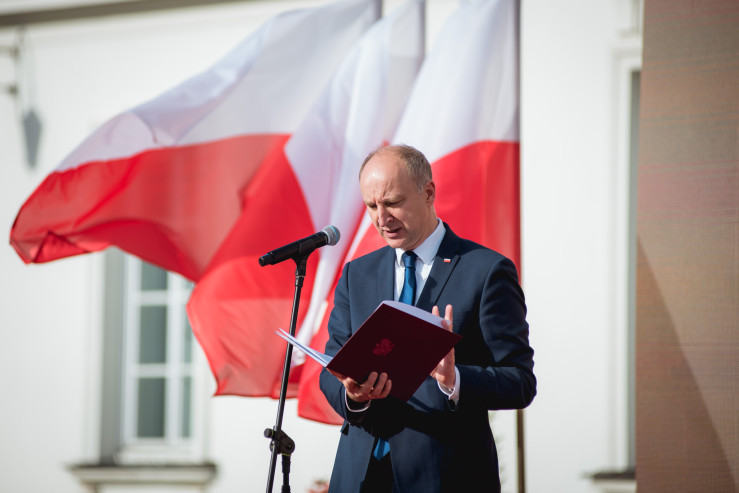
Next, Prof. Arkady Rzegocki, Head of the Foreign Service at the Ministry of Foreign Affairs, read a letter from Prime Minister Mateusz Morawiecki.
Ladies and Gentlemen,
We owe them enormous gratitude. I am all the more happy that today, the Polish state can honor successive people who saw the persecuted Poles as their neighbors and strove to help them; people who refused to accept the cruelty of two totalitarian systems and saved human dignity.
Excerpt from the letter of Prime Minister Mateusz Morawiecki
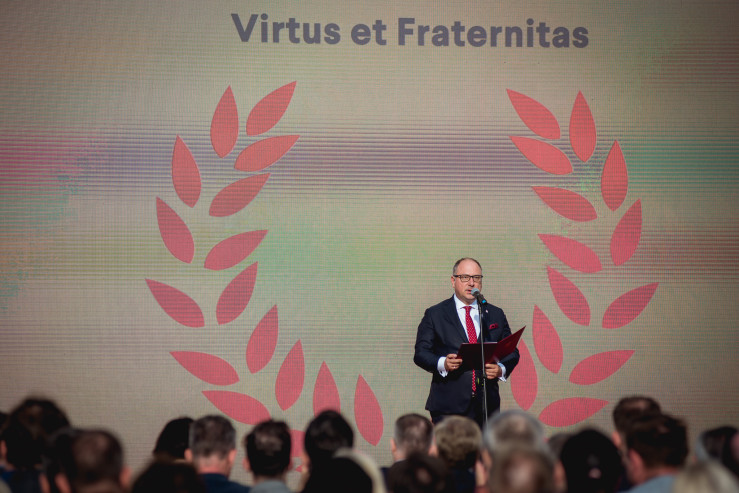
Afterwards, Professor Magdalena Gawin, director of the Pilecki Institute, read out a letter from the Speaker of the Polish Sejm Elżbieta Witek.
Those who helped never thought of themselves in terms of heroism; they were driven by deep compassion and solidarity. Helping others was also an expression of opposition to evil and hatred, and allowed them to preserve their dignity and sense of humanity. Their sacrifice, goodness, and faithfulness to their own convictions are still worthy of the greatest respect.
Excerpt from the letter of the Speaker of the Sejm Elżbieta Witek
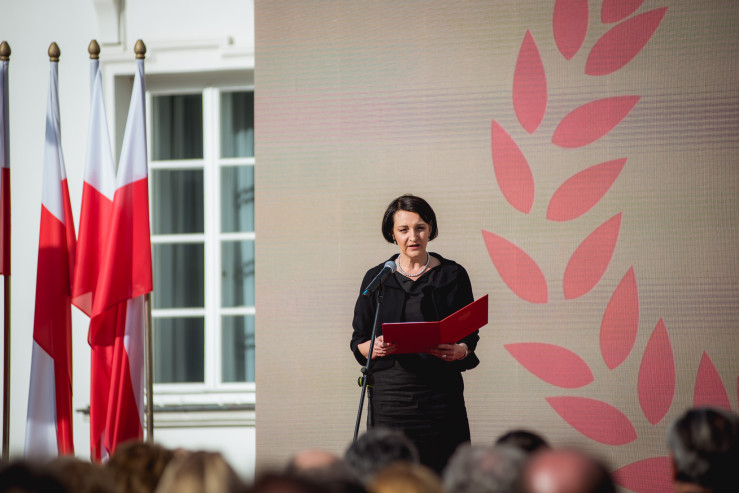
Next, the Deputy Minister of Culture and National Heritage Jarosław Sellin read out a letter from the Deputy Prime Minister and Minister of Culture and National Heritage Prof. Piotr Gliński.
Although war is fought on battlefields and its fate is decided in the offices of politicians, it always has the face of a wronged and desperate man, torn away from his life by violence.
Excerpt from a letter by Prof. Piotr Gliński, Deputy Prime Minister, Minister of Culture and National Heritage
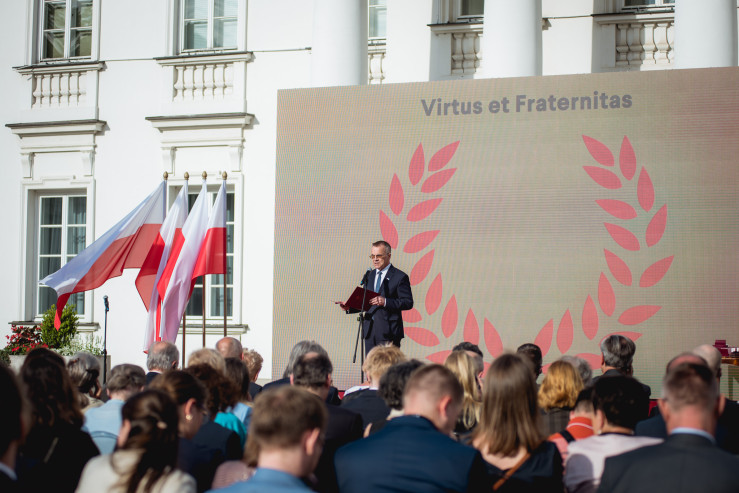
On behalf of the President of the Republic of Poland, Andrzej Duda, the Virtus et Fraternitas Medals were presented by the Secretary of State at the Chancellery of the President of the Republic of Poland, Minister Wojciech Kolarski.
Medal recipients
Jeanine Humbert née Hermann (born 1934)
She provided assistance to Polish prisoners of war who escaped from the German Ursprung camp in 1944. Jeanine Humbert received the medal in person.
Kateryna (1909–2000) and Fedor (1905–1974) Boymistruk
A Ukrainian husband and wife who rescued two-year-old Hanna Muszyd from death during the Volhynia Massacre. The medal was received by their granddaughter.
Pedro Correia Marques (1890–1972)
A Portuguese journalist who called on the international community to provide humanitarian aid to Poles under German and Soviet occupation (especially during the Warsaw Uprising). The medal was received by Pedro Correia Marques’s grandson.
Rosalie Eugénie Fogel née Gorius (1919–2007) and Léon Humbert (1900–1969)
They helped Polish prisoners of war escape from the Ursprung camp and then hid them at the Gorius family’s farm. The medal was received by Jeanine Humbert, Gorius’ granddaughter and Leon’s niece.
Janet (1888–1945) and Peter (1884–1950) Fraser
They organized care for 733 Polish children who were in Iran in 1943. The medal was received by the couple’s great-great-grandson.
Elna Gistedt-Kiltynowicz (1895–1982)
A Swedish actress who remained in Poland after the outbreak of the Second World War and provided assistance to artists. Illegal concerts for Polish children were held at her café on Nowy Świat Street in Warsaw. The medal was received by a relative of the actress.
Józsefné Margit Károlyi (1892–1964)
A Hungarian countess involved in helping Polish refugees in September 1939 as part of the Hungarian-Polish Refugee Welfare Committee. The medal was received by the countess’s grandson.
Ján Klinovský (1905–1944)
A Slovak politician who provided assistance to Poles during the Second World War (e.g. by forwarding correspondence and organizing the smuggling of Polish citizens through Slovakia). The medal was received by Ján Klinovský’s niece.
Hélène Pionstka née Waldmann (1921–2009)
A Frenchwoman who helped Polish prisoners of war escaping from the German Ursprung camp. The medal was received by her daughter.
Aristides de Sousa Mendes do Amaral e Abranches (1885–1954)
A Portuguese diplomat who issued between 6,000 and 10,000 Portuguese visas (including to Polish Jews fleeing territories under German occupation) from May to July 1940. The medal was received by his grandson.
César de Sousa Mendes do Amaral e Abranches (1885–1955)
The Portuguese envoy to Poland. One of the few foreign diplomats who did not leave Warsaw in September 1939. He helped Cecylia Dolata, a Polish teacher, to escape from Poland. The medal was received by his son.
Paul Super (1880–1949)
The Director of the American Commission for Aid to Poles. He helped Polish soldiers to reach France and aided Polish refugees in Romania and Hungary. The medal was received by his great-grandson.
Mykhailo Susla (1901–1970)
A Ukrainian who helped the Świętojański family to escape during the Volhynia Massacre. The medal was received by his grandson Ruslan Susla.
Erzsébet (1902–1980) and Antal (1905–1972) Szápáry
Siblings from Hungary who supported Polish civilians crossing into Hungary during the Second World War as part of the Hungarian-Polish Refugee Welfare Committee. The medal was received by Antal’s son and Erzsébet’s niece.
Raymond Voegeli (1894–1980)
A French clergyman. One of the organizers of the escape of Polish prisoners of war from the German camp in Ursprung. He also gave them shelter and help. The medal was received by a representative of the Archbishop of Strasbourg.
Edith Weiss (1899–1967)
A member of the Hungarian-Polish Refugee Welfare Committee. She provided assistance to Jewish people, including Polish Jews, in Hungary and protected them from deportation. The medal was received by a relative of Edith Weiss.
Julien Bryan (1899–1974)
An American photographer and documentary filmmaker. He recorded crimes committed in Poland during the Second World War. The medal was received by a representative of the US Embassy in Poland.
Following the presentation of the Virtus et Fraternitas Medals, Jeanine Humbert spoke on behalf of the recipients.
On 5 December 1944, the day after my birthday, the Poles were liberated by the Americans and left with them. I was just a little girl, but their departure marked and saddened me greatly because I had become attached to them. The generosity shown by my family has guided me throughout my life. Today, it is with a heart full of emotion that I take part in this ceremony and I especially want to thank sincerely the Urbanik family and the people of Poland for the tribute.
Excerpt from Jeanine Humbert’s speech
Stanisław Urbanik then spoke on behalf of the Polish survivors.
One must be fortunate to meet good people to survive the war. The Polish prisoners of war met such good people in Fréland.
Excerpt from Stanisław Urbanik’s speech
We also managed to establish an Internet connection with Hanna Muszyd, the survivor and foster daughter of the Boymistruks, and Julien Bryan’s son. Both of them gave an emotional expression of their gratitude.
Finally, Ruslan Susla, the grandson of Mykhailo Susla, spoke.
Why did my grandfather save a Polish family? Because he was brought up in such a way that people in need should be helped. That is what millions of Poles are doing now, providing selfless help to Ukrainians.
Excerpt from Ruslan Susla’s speech
The official section of the gala was concluded with a performance by the Zazula vocal group.
In the evening, the guests attended the opening of an exhibition devoted to the recipients of the Virtus et Fraternitas Medal. The exhibition is on display outside the Kordegarda Gallery until 5 July.
See also
- We know the names of the Virtus et Fraternitas Medal recipients | 2024
We know the names of the Virtus et Fraternitas Medal recipients | 2024
On 17 December 2024, the Virtus et Fraternitas Medal ceremony was held for the sixth time at the Belweder Palace in Warsaw. The award was given to 10 people from the following countries: Austria, Norway, Slovakia and Hungary.
- Virtus et Fraternitas Medals awarded | Discover the stories of heroic Ukrainians who saved their Polish neighbors during the Volhynian Massacre
Virtus et Fraternitas Medals awarded | Discover the stories of heroic Ukrainians who saved their Polish neighbors during the Volhynian Massacre
On 6 July 2023, at the Belweder Palace in Warsaw, fifteen heroic Ukrainians were commemorated for saving their Polish neighbors from death at the hands of the Ukrainian Insurgent Army (faction of the Organization of Ukrainian Nationalists) during the Volhynia Massacre.
- We now know the names of the Virtus et Fraternitas Medal recipients
We now know the names of the Virtus et Fraternitas Medal recipients
On 20 December 2022, at the Belweder Palace in Warsaw, we honored Ilona Andrássy, Trofim Daneliuk and the Skakalski family, who demonstrated courage and solidarity with the persecuted when Poland was attacked by two murderous regimes, and the Polish citizens were in grave danger.
- The Virtus et Fraternitas Gala 2021. Meet all the recipients!
The Virtus et Fraternitas Gala 2021. Meet all the recipients!
The President of Poland Andrzej Duda awarded the medals to foreigners who provided aid to Polish citizens during the 20th century, in times of both war and peace.
- Walenty Jabłoński, doctor and an exile in Siberia, is dead
Walenty Jabłoński, doctor and an exile in Siberia, is dead
We are sad to learn of the death of Walenty Jabłoński, an exile in Siberia, participant of the Union of Siberian Exiles in Białystok. He was deported to a kolkhoz in Kazakhstan in 1952, where he was saved from starvation and death by Tassybaj Abdikarimow.
- Virtus et Fraternitas Medal
Virtus et Fraternitas Medal
The Virtus et Fraternitas Medal is a token of gratitude of the Republic of Poland for rescuing its citizens in times of the country’s greatest distress.
- The President of the Republic of Poland decorates recipients with the Virtus et Fraternitas Medal
The President of the Republic of Poland decorates recipients with the Virtus et Fraternitas Medal
The Virtus et Fraternitas Medal has been bestowed for the first time in history in June 2019. The awards were given by the President of the Republic of Poland, Andrzej Duda, acting on a motion of the Pilecki Institute.
